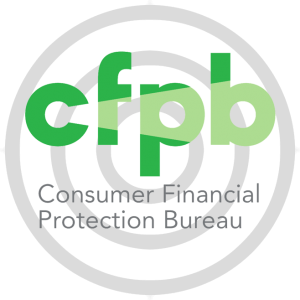Search the Blog
Categories
- Books & Reading
- Broadband Buzz
- Census
- Education & Training
- General
- Grants
- Information Resources
- Library Management
- Nebraska Center for the Book
- Nebraska Libraries on the Web
- Nebraska Memories
- Now hiring @ your library
- Preservation
- Pretty Sweet Tech
- Programming
- Public Library Boards of Trustees
- Public Relations
- Talking Book & Braille Service (TBBS)
- Technology
- Uncategorized
- What's Up Doc / Govdocs
- Youth Services
Archives
Subscribe
Category Archives: Uncategorized
Resources for Financial Literacy Month
April is Financial Literacy Month – a great time to think about money programs and displays. And, the last week of April is Money Smart Week, a national financial education recognition week. Here are some things you can consider as we head into this big money month:
Webinar: CFPB: Partnering with Libraries to Financially Empower Patrons
The CFPB has two webinars planned for later this month. The first will be hosted by the U.S. Government Printing Office’s Federal Depository Library Program. The CFPB will be providing an overview of our Community Financial Education Libraries Initiative. If you’re new to this program, or just want a refresher on what the program offers and how to access the free resources we provide, then register today.
The 60-minute webinar will begin at 2 p.m. (EDT) on March 23. The webinar is free, but you must register.
Webinar: Financial education resources for parents
The second webinar will focus on new resources we’ve developed just for parents and children. Parents and caregivers want to get their children off on the right financial footing, but many times don’t know where to start. So, we’re introducing the CFPB’s new Money as You Grow website, which provides the framework and resources to help.
This 60-minute webinar will start at 2 p.m. (EDT) on March 24. To join, access the webinar login page at the day and time of the event. For audio, dial 888-795-5920 and enter participant passcode 7173562.
Order free money books, brochures, worksheets and more
Now’s the time to place your orders for free money guides, worksheets and other materials from the CFPB and other government agencies like the Federal Trade Commission, Securities and Exchange Commission, Social Security Administration, Department of Labor and others.
Plus, if you’re hosting a Money Smart Week event at your library, you can order free posters, bookmarks and more.
Need money related program ideas?
Stumped over what to do for Financial Literacy Month or Money Smart Week? Take a look at our list of program ideas for suggestions on topics, resources, partners and more.
Our webinar archive can also help you generate ideas. We have more than a dozen to choose from, including:
• Retirement planning tools and resources
• Helping patrons spot and avoid fraud
• New home-buyers (and owners) toolbox
• How to promote your financial education program
National my Social Security Week
One of our national partners, Social Security Administration (SSA) will hold National my Social Security Week April 4 – 13, 2016, during Financial Literacy Month.
To help raise awareness, SSA provides a toolkit that includes web graphics, social media posts, web banners, and other ready-to-use content to help us spread the word about the importance of opening a my Social Security account.
Creating a my Social Security account gives workers access to their personalized Social Security Statement. It’s free, fast, and secure. The Statement provides estimates of future benefits to help with financial planning. Workers can also use it to check their earnings information. This is important because we base benefit calculations on a worker’s earnings.
As an added feature this year, we are setting aside Thursday, April 7, 2016 as Check Your Statement Day, during which time we will encourage workers to access and review their Social Security Statement and join the millions who regularly check their Statement.
Digital resources
Promote financial education digitally with our free electronic graphics and marketing materials. Add financial screen savers to your computers or web banners to your website. Plus, access the CFPB’s Facebook, Twitter, and YouTube pages to share our posts, info-graphics and videos with your patrons, like this video from CFPB Director Richard Cordray.
The Data Dude on the Human Library
 In order to meet the constraints of posting something at least weekly, sometimes these things need to venture out into the non-data world. Today is one of those days. Recently, the Dude was reading some news articles about human library projects. What a great idea for a library program. For those of you who might be unfamiliar with such an idea, as far as the Dude can tell, it originated as “Menneskebiblioteket”, the Danish word for Human Library, in Copenhagen in 2000. The idea is pretty simple. The “library” consists of various “books”, which aren’t books at all, but rather just different types of people, or people that have had different experiences and who are willing to share those experiences or knowledge with someone else. Some of these different people who are mentioned on the Human Library website include: naturist (no, that’s not naturalist, but maybe there’s one of those too), young single mother, solider (PTSD), Autism (ASD), Bipolar, Muslim, Unemployed, Refugee, and Homeless). Now if you are interested in such a program, you needn’t invest a lot of cash into purchasing or (in the spirit of the eBook model) leasing these “books”. Rather, it might be a fairly safe bet to say that these people already exist in your community. What a great program for kids. Perhaps you have WWII, Vietnam, or other veterans in your community? Check them out for an hour. Maybe the library could dedicate a space where the checker outer would have to buy the “book” a lunch or something. Make it worth their while. Although the Dude guesses that most of the “books” would definitely do this for free. It may take some coercion, though, as many of these people most likely have a degree of modesty (except for the guy who boasts that he was a big wave surfer, before he injured his knee of course). The most obvious byproduct of this is the connection that forms between the checker outer and the human book. Ideas are exchanged. Lives may be changed. The library is the facilitator. While perhaps listening to someone publically speak about their experiences may certainly be transformative, this type of a program is interactive because it’s a one on one conversation. And, let’s not fail to mention that you may be able to drum up more interest among those wanting to be “books” because they only have to do the one on one (no large crowds). Finally, the library involvement in this is merely the middle man, or the space provider, so let’s call it a low investment program. Shaka.
In order to meet the constraints of posting something at least weekly, sometimes these things need to venture out into the non-data world. Today is one of those days. Recently, the Dude was reading some news articles about human library projects. What a great idea for a library program. For those of you who might be unfamiliar with such an idea, as far as the Dude can tell, it originated as “Menneskebiblioteket”, the Danish word for Human Library, in Copenhagen in 2000. The idea is pretty simple. The “library” consists of various “books”, which aren’t books at all, but rather just different types of people, or people that have had different experiences and who are willing to share those experiences or knowledge with someone else. Some of these different people who are mentioned on the Human Library website include: naturist (no, that’s not naturalist, but maybe there’s one of those too), young single mother, solider (PTSD), Autism (ASD), Bipolar, Muslim, Unemployed, Refugee, and Homeless). Now if you are interested in such a program, you needn’t invest a lot of cash into purchasing or (in the spirit of the eBook model) leasing these “books”. Rather, it might be a fairly safe bet to say that these people already exist in your community. What a great program for kids. Perhaps you have WWII, Vietnam, or other veterans in your community? Check them out for an hour. Maybe the library could dedicate a space where the checker outer would have to buy the “book” a lunch or something. Make it worth their while. Although the Dude guesses that most of the “books” would definitely do this for free. It may take some coercion, though, as many of these people most likely have a degree of modesty (except for the guy who boasts that he was a big wave surfer, before he injured his knee of course). The most obvious byproduct of this is the connection that forms between the checker outer and the human book. Ideas are exchanged. Lives may be changed. The library is the facilitator. While perhaps listening to someone publically speak about their experiences may certainly be transformative, this type of a program is interactive because it’s a one on one conversation. And, let’s not fail to mention that you may be able to drum up more interest among those wanting to be “books” because they only have to do the one on one (no large crowds). Finally, the library involvement in this is merely the middle man, or the space provider, so let’s call it a low investment program. Shaka.
P.S. – The Criss Library at UNO is sponsoring a human library event on April 13, 2016
Posted in General, Library Management, Programming, Uncategorized
Leave a comment
Friday Reads: Carsick by John Waters
“It wasn’t until I started reading and found books they wouldn’t let us read in school that I discovered you could be insane and happy and have a good life without being like everybody else.”
― John Waters
Let’s just say right off the top, if you’ve already heard of John Waters and have seen and didn’t care for his movies, you probably will not like this book. If you weren’t offended by his films (Ok, if you might have been just a bit moderately offended but not totally disgusted to the point that you could no longer watch), this book could be right up your alley. For me, it certainly was! I loved it, laughing harder than I have in months. Maybe even years! Crammed full of carnival oddities, raw direct adult language, filth (both general and specific), the grotesque, and other assorted deviances, this book is definitely not for the squeamish. Consisting of various explicit stories told in the most humorous of fashions, the basic premise is that Waters (often called the Pope of Trash or the People’s Pervert) hitchhikes from his home in Baltimore to his second home in San Francisco and then details his experience on the road. The first two parts of the book are fiction and are told in a fashion very Waters-esque, living up to his aforementioned unofficial titles. Part one is a chronicle of what his journey across the country would be like from a best case scenario perspective; part two from a worst case perspective. The final third of the book details what actually happened in his hitchhike across the country. We salute and thank you, John Waters (and my local library for including this book in the collection), for feeding the soul of the low brow reader.
The Data Dude – NLC Supplemental Survey
 Today’s post is a friendly reminder to complete your NLC supplemental survey. If you have not completed yours, log in to the supplemental survey and knock it out. It won’t take much time. The supplemental survey provides information used in online web pages, public library maps, and other directories. The survey asks questions about public library staff, board members, friends groups, hours, website URL’s, and library social media accounts. It is important to keep this information up to date. The survey can be completed at any time the library information changes, but reminders are sent around the time of the annual public library survey (that’d be now). The ID and password for the supplemental survey are the same as your Bibliostat ID and password. If you don’t remember yours, contact me and I will send it to you. Shaka.
Today’s post is a friendly reminder to complete your NLC supplemental survey. If you have not completed yours, log in to the supplemental survey and knock it out. It won’t take much time. The supplemental survey provides information used in online web pages, public library maps, and other directories. The survey asks questions about public library staff, board members, friends groups, hours, website URL’s, and library social media accounts. It is important to keep this information up to date. The survey can be completed at any time the library information changes, but reminders are sent around the time of the annual public library survey (that’d be now). The ID and password for the supplemental survey are the same as your Bibliostat ID and password. If you don’t remember yours, contact me and I will send it to you. Shaka.
Posted in General, Library Management, Uncategorized
Leave a comment
New Nebraska State Agency Publications
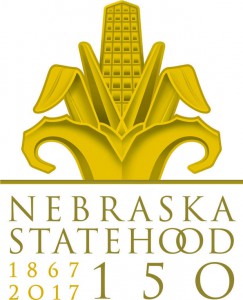 New Nebraska State Agency publications have been received at the Nebraska Library Commission for February 2016. Included are Annual and Audit reports, publications from the Department of Natural Resources, Local Emergency Operations Plans from various Nebraska counties, reports from the Nebraska Legislature, and new titles from the University of Nebraska Press, to name a few.
New Nebraska State Agency publications have been received at the Nebraska Library Commission for February 2016. Included are Annual and Audit reports, publications from the Department of Natural Resources, Local Emergency Operations Plans from various Nebraska counties, reports from the Nebraska Legislature, and new titles from the University of Nebraska Press, to name a few.
The Data Dude – Wednesday Watch: Nurse Jackie
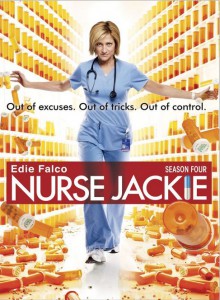 Emotionally, watching Nurse Jackie gives you a taste of what actually living with or having some sort of relationship (e.g. romantic, ex-spouse, work) with an addict might feel like. Albeit the Nurse Jackie TV experience may not be quite as dramatic as living it in real life, certainly the TV Nurse Jackie gets a lot of the typical behaviors of an addict right. And, let’s face the truth, it ain’t pretty. Nurse Jackie, played splendidly by Edie Falco, is a NYC nurse in an ER trauma center. At first, we feel empathy for Jackie because she is a really good nurse. She cuts through red tape to make things happen, is responsive to her patients, saves lives, gets things done when they need to be done, and has a good bedside manner. Rather quickly, however, we discover the sketchy moral ground Jackie walks on, and while we still feel some degree of empathy when it comes to her work relationships (e.g. between Jackie and the ER patients), in the other areas of her life things start to slowly erode. Yet still, as these things diminish, the affinity the Dude felt for those other people in Jackie’s life increased. In addition to Jackie’s sketchy interpretation of the code of nursing ethics, she often makes questionable life choices when it comes to the other areas of her life. Jackie’s drug of choice is prescription medication (mostly painkillers).
Emotionally, watching Nurse Jackie gives you a taste of what actually living with or having some sort of relationship (e.g. romantic, ex-spouse, work) with an addict might feel like. Albeit the Nurse Jackie TV experience may not be quite as dramatic as living it in real life, certainly the TV Nurse Jackie gets a lot of the typical behaviors of an addict right. And, let’s face the truth, it ain’t pretty. Nurse Jackie, played splendidly by Edie Falco, is a NYC nurse in an ER trauma center. At first, we feel empathy for Jackie because she is a really good nurse. She cuts through red tape to make things happen, is responsive to her patients, saves lives, gets things done when they need to be done, and has a good bedside manner. Rather quickly, however, we discover the sketchy moral ground Jackie walks on, and while we still feel some degree of empathy when it comes to her work relationships (e.g. between Jackie and the ER patients), in the other areas of her life things start to slowly erode. Yet still, as these things diminish, the affinity the Dude felt for those other people in Jackie’s life increased. In addition to Jackie’s sketchy interpretation of the code of nursing ethics, she often makes questionable life choices when it comes to the other areas of her life. Jackie’s drug of choice is prescription medication (mostly painkillers).
Just like real life, there is much comedy surrounding the tragedy, and this is mostly due to a strong cast of supporting characters. Notably, these include nurse Zoey (Merritt Wever), pharmacist Eddie (Paul Schulze), best friend of Jackie Dr. O’Hara (Eve Best), Dr. Cooper (Peter Facinelli), hospital administrator Gloria Akalitus (Anna Deavere Smith), and nurse colleague Thor (Stephen Wallem). The comedy is not always under the blanket of Jackie’s addiction, but rather the recurring oddball characters, strange ER situations, and typical daily life situations. And because this is Showtime, it probably lends itself to a bit more believability, as the normal network constraints are absent. Many times in the past, we’ve seen male lead characters unravel in front of us, often predictably so as they sink down a moral mudslide (e.g. Walter White, Don Draper, Dexter Morgan, Ray Donovan, Hank Moody, and Frank Underwood to name a few), but in rarer times do we see this in female leads. Arguably, Nancy Botwin (Weeds) and Carrie Mathison (Homeland), might fit the ticket, but that also might be a bit of a stretch. There is a parallel here (with the unraveling bit), and as Jackie wavers here and there she undoubtedly is headed down that same path.
According to FirstSearch and depending on the season, only 4 Nebraska public libraries have Nurse Jackie in their collection. If your library is looking for something that is half drama half comedy, Nurse Jackie would fit the bill. Thank you, Showtime, for permissions on the cover art. Shaka.
Posted in General, Library Management, Uncategorized
Leave a comment
Nourish Strong Partnerships to Foster Health Education
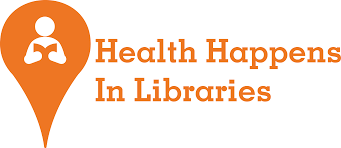 The Health Happens in Libraries team has posted a new article to support libraries as you Nourish Strong Partnerships to Foster Health Education. The article includes two key resources to amplify your efforts:
The Health Happens in Libraries team has posted a new article to support libraries as you Nourish Strong Partnerships to Foster Health Education. The article includes two key resources to amplify your efforts:
Supporting Healthy Communities through Health Information and Services is a free resource to guide library staff in identifying local community health priorities and finding the right partners to address those priorities. The guide emphasizes strategies to access community data, make contact with other community organizations, and serve children, families and your community at large with a focus on health. The PDF guide can be downloaded here.
In addition, the Developing Health Literacy through Health Information and Services guide provides further inspiration on promoting health literacy in your community. It highlights many freely available health literacy resources for you and your library’s patrons to access at any time. This PDF guide is available for download here.
Both guides include individual and team reflection questions to help you take action on the information in a local context.
Please-take a look! Print a copy, share with your colleagues and post your ideas for using these resources to social media with the hashtag #libs4health. (If this request looks familiar, it is! :-))
Thanks for all you do to contribute to the vitality of your communities.
(Reprinted from OCLC WebJunction, Thursday, February 25, 2016)
The Data Dude on Post-Public Library Survey
 Now that the deadline for the public library survey has passed, perhaps it might be beneficial to reiterate the importance of collecting this data. If, as you were collecting and reporting this data, you might have been thinking that this is all a complete waste of time, today the Dude will attempt to illustrate that not all of your work was done in vain. And please, while thoughts are fresh in your head, feel free to e-mail suggestions about how things might be better for next year’s survey. Are there questions that are no longer relevant in your opinion? Questions that were ambiguous? Edit checks that didn’t make sense (admittedly, the Dude got tired of looking at “we did not loan any items to other libraries”)? No suggestion is too trivial for consideration!
Now that the deadline for the public library survey has passed, perhaps it might be beneficial to reiterate the importance of collecting this data. If, as you were collecting and reporting this data, you might have been thinking that this is all a complete waste of time, today the Dude will attempt to illustrate that not all of your work was done in vain. And please, while thoughts are fresh in your head, feel free to e-mail suggestions about how things might be better for next year’s survey. Are there questions that are no longer relevant in your opinion? Questions that were ambiguous? Edit checks that didn’t make sense (admittedly, the Dude got tired of looking at “we did not loan any items to other libraries”)? No suggestion is too trivial for consideration!
As many of you know, the public library survey is a requirement for your library if you are accredited, and if you aren’t accredited, there is candy dangled in front of you in the form of 200 bucks if you complete the survey. This program is called Dollar$ for Data. Now aside from these perceived bribes and threats to complete the survey, what are some of the other reasons for doing it? There certainly are some, aren’t there? Well, let’s first mention some of the national reasons, as every state (and U.S. territory) must collect and submit public library survey data to the Institute of Museum and Library Services (a/k/a IMLS). IMLS, in case you didn’t know, is an independent agency created by the U.S. federal government, and is responsible for the primary support of the libraries and museums in the nation (and U.S. territories). This involves many things such as the formulation of policies, research, and collaboration with state library administrative agencies (such as the Library Commission). But part of all this is that IMLS also distributes funding and grants to libraries and museums. Data collection and analysis is a part of the development and continuation of those federal programs.
At the state and local level, collecting this data is important for those same reasons. An example is that it would be hard to demonstrate funding requests for things like the Nebraska OverDrive consortium without having any data, statistics, or trend files that illustrate the use of electronic materials. What about strategic planning? Many of you might already know that every library in the state has what are called “peer libraries”. These are libraries that are identified as similar to your library. Most of the time this means that they are within a certain range of your legal service area (or LSA). At the local level, this is important because you can then compare things like your collection, staffing, budget, and other library services with your peers (a/k/a keeping up with the Joneses). Some of the peer libraries are Iowa libraries because there aren’t enough comparable libraries in Nebraska.
Finally, if you want data for your peer libraries (and after this year’s survey cycle is over, we will re-calculate your peer libraries – most likely this coming summer, so keep that in mind), you can contact the Dude and he will extract and send (E&S) those data files to you. There is also the IMLS compare public libraries tool, which allows you to pull comparable nationwide data. Keep in mind, however, that the data for the compare tool is usually a year behind the data that many states (including Nebraska) collect and publish. It might, however, be a good starting point to identify similar libraries. Finally, if you are looking for more current data from states other than Nebraska, the Colorado Library Research Service provides a page that has links to the data files for each state, if those are available. Shaka.
Posted in General, Library Management, Uncategorized
Leave a comment
Free Webinar–“Grants.gov : Register, Find, Apply”
 A live training webinar, “Grants.gov: Register, Find, and Apply” will be presented on Thursday, March 17, 2016.
A live training webinar, “Grants.gov: Register, Find, and Apply” will be presented on Thursday, March 17, 2016.
Register today for “Grants.gov: Register, Find, and Apply”
-
Start time: 2:00 p.m. (Eastern)
Duration: 60 minutes
Speaker: Judy Ceresa, Program Advisor, Grants.gov Program Management Office
Learning outcomes: Participants will learn how to register in order to submit Federal grant applications and how to use the Federal Grants.gov system to find and apply for grant funding.
Expected level of knowledge for participants: No prerequisite knowledge required
The webinar is free, however registration is required. Upon registering, a confirmation email will be sent to you. This registration confirmation email includes the instructions for joining the webinar.
Registration confirmations will be sent from sqldba @ icohere.com. To ensure delivery of registration confirmations, registrants should configure junk mail or spam filter(s) to permit messages from that email address. If you do not receive the confirmation, please notify GPO.
GPO’s eLearning platform presents webinars using WebEx. In order to attend or present at a GPO-hosted webinar, a WebEx plug-in must be installed in your internet browser(s). Download instructions.
Visit FDLP Academy for access to FDLP educational and training resources. All are encouraged to share and re-post information about this free training opportunity.
The Data Dude – Public Library Survey
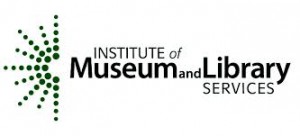 For you procrastinators, it is now the moment of truth for the annual IMLS Public Library Survey. The deadline is February 19, 2016. The Bibliostat Collect portion of the data services section of the NLC website has a link to the login, instructions, tips, and other tidbits to help you complete the survey. Keep in mind that the survey is required for your library to receive state aid if you are accredited. If you aren’t accredited, you still have an incentive to complete the survey ($200), called Dollar$ for Data.
For you procrastinators, it is now the moment of truth for the annual IMLS Public Library Survey. The deadline is February 19, 2016. The Bibliostat Collect portion of the data services section of the NLC website has a link to the login, instructions, tips, and other tidbits to help you complete the survey. Keep in mind that the survey is required for your library to receive state aid if you are accredited. If you aren’t accredited, you still have an incentive to complete the survey ($200), called Dollar$ for Data.
If you run into a bind and have special circumstances, please let me know. I am here to help you with the process in any way I can. Don’t hesitate to contact me. Thank you in advance for your participation and patience. Shaka
Posted in General, Library Management, Uncategorized
Leave a comment
IRS Phone Scams Are A Serious Threat
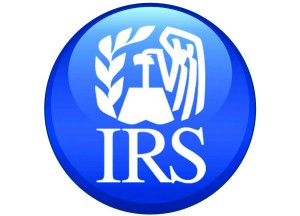 Aggressive and threatening phone calls by criminals impersonating IRS agents remain a major threat to taxpayers, headlining the annual “Dirty Dozen” list of tax scams for the 2016 filing season, the Internal Revenue Service announced today.
Aggressive and threatening phone calls by criminals impersonating IRS agents remain a major threat to taxpayers, headlining the annual “Dirty Dozen” list of tax scams for the 2016 filing season, the Internal Revenue Service announced today.
The IRS has seen a surge of these phone scams as scam artists threaten police arrest, deportation, license revocation and other things. The IRS reminds taxpayers to guard against all sorts of con games that arise during any filing season.
“Taxpayers across the nation face a deluge of these aggressive phone scams. Don’t be fooled by callers pretending to be from the IRS in an attempt to steal your money,” said IRS Commissioner John Koskinen. “We continue to say if you are surprised to be hearing from us, then you’re not hearing from us.”
“There are many variations. The caller may threaten you with arrest or court action to trick you into making a payment,” Koskinen added. “Some schemes may say you’re entitled to a huge refund. These all add up to trouble. Some simple tips can help protect you.”
The Dirty Dozen is compiled annually by the IRS and lists a variety of common scams taxpayers may encounter any time during the year. Many of these con games peak during filing season as people prepare their tax returns or hire someone to do so.
This January, the Treasury Inspector General for Tax Administration (TIGTA) announced they have received reports of roughly 896,000 contacts since October 2013 and have become aware of over 5,000 victims who have collectively paid over $26.5 million as a result of the scam.
“The IRS continues working to warn taxpayers about phone scams and other schemes,” Koskinen said. “We especially want to thank the law-enforcement community, tax professionals, consumer advocates, the states, other government agencies and particularly the Treasury Inspector General for Tax Administration for helping us in this battle against these persistent phone scams.”
Protect Yourself
Scammers make unsolicited calls claiming to be IRS officials. They demand that the victim pay a bogus tax bill. They con the victim into sending cash, usually through a prepaid debit card or wire transfer. They may also leave “urgent” callback requests through phone “robo-calls,” or via a phishing email.
Many phone scams use threats to intimidate and bully a victim into paying. They may even threaten to arrest, deport or revoke the license of their victim if they don’t get the money.
Scammers often alter caller ID numbers to make it look like the IRS or another agency is calling. The callers use IRS titles and fake badge numbers to appear legitimate. They may use the victim’s name, address and other personal information to make the call sound official.
Here are five things the scammers often do but the IRS will not do. Any one of these five things is a tell-tale sign of a scam.
The IRS will never:
- Call to demand immediate payment, nor will the agency call about taxes owed without first having mailed you a bill.
- Demand that you pay taxes without giving you the opportunity to question or appeal the amount they say you owe.
- Require you to use a specific payment method for your taxes, such as a prepaid debit card.
- Ask for credit or debit card numbers over the phone.
- Threaten to bring in local police or other law-enforcement groups to have you arrested for not paying.
If you get a phone call from someone claiming to be from the IRS and asking for money, here’s what you should do:
If you don’t owe taxes, or have no reason to think that you do:
- Do not give out any information. Hang up immediately.
- Contact TIGTA to report the call. Use their “IRS Impersonation Scam Reporting” web page. You can also call 800-366-4484.
- Report it to the Federal Trade Commission. Use the “FTC Complaint Assistant” on FTC.gov. Please add “IRS Telephone Scam” in the notes.
If you know you owe, or think you may owe tax:
- Call the IRS at 800-829-1040. IRS workers can help you.
Stay alert to scams that use the IRS as a lure. Tax scams can happen any time of year, not just at tax time. For more, visit “Tax Scams and Consumer Alerts” on IRS.gov.
Each and every taxpayer has a set of fundamental rights they should be aware of when dealing with the IRS. These are your Taxpayer Bill of Rights. Explore your rights and our obligations to protect them on IRS.gov.
The Data Dude: Public Library Survey Reminder
 Shaka. It is getting close to crunch time for the annual IMLS Public Library Survey. The deadline is February 19, 2016, a mere 9 days away. The Bibliostat Collect portion of the data services section of the NLC website has a link to the login, instructions, tips, and other tidbits to help you complete the survey. Keep in mind that the survey is required for your library to receive state aid if you are accredited. If you aren’t accredited, you still have an incentive to complete the survey ($200), called Dollar$ for Data.
Shaka. It is getting close to crunch time for the annual IMLS Public Library Survey. The deadline is February 19, 2016, a mere 9 days away. The Bibliostat Collect portion of the data services section of the NLC website has a link to the login, instructions, tips, and other tidbits to help you complete the survey. Keep in mind that the survey is required for your library to receive state aid if you are accredited. If you aren’t accredited, you still have an incentive to complete the survey ($200), called Dollar$ for Data.
As of yesterday, our response rates are still pretty low. If you run into a bind and have special circumstances, please let me know. I am here to help you with the process in any way I can. Don’t hesitate to contact me. Thank you in advance for your participation and patience.
Posted in General, Library Management, Uncategorized
Leave a comment
New Nebraska State Agency Publications
 New Nebraska State Agency publications have been received at the Nebraska Library Commission for January 2016. Included are Annual and Audit reports, Economic Development reports, Summer Reading programs for Libraries, and new titles from the University of Nebraska Press, to name a few.
New Nebraska State Agency publications have been received at the Nebraska Library Commission for January 2016. Included are Annual and Audit reports, Economic Development reports, Summer Reading programs for Libraries, and new titles from the University of Nebraska Press, to name a few.
The Data Dude on Almost Constant Online Use
 The Dude is hard at work reviewing surveys and like many of you is starting to suffer from data drudgery (a/k/a the DD’s). Thanks to all of you who are working on getting your survey submitted. Because of this, today’s post will regurgitate a recent report from the Pew Research Center. The title of the report says it all: One-fifth of Americans report going online ‘almost constantly’ (and nothing illustrates this more than a frog in a shopping cart next to a 1980’s PC). If you want a further breakdown of the demographics of these online addictions, take a closer look at the report. This is the first time that Pew included an “almost constantly” option on a survey. One of the takeaways from this is that in light of the “almost constantly” possibility, if you are either promoting your library or running your business (or running your library like a business) then you’d be better served to take things into account like the use of mobile devices and social media when you design your websites and promote your services. Because 20% of Americans are on those things “almost constantly”. Let your imagination guide you when considering that 20% and how that “almost constant” affects their daily lives.
The Dude is hard at work reviewing surveys and like many of you is starting to suffer from data drudgery (a/k/a the DD’s). Thanks to all of you who are working on getting your survey submitted. Because of this, today’s post will regurgitate a recent report from the Pew Research Center. The title of the report says it all: One-fifth of Americans report going online ‘almost constantly’ (and nothing illustrates this more than a frog in a shopping cart next to a 1980’s PC). If you want a further breakdown of the demographics of these online addictions, take a closer look at the report. This is the first time that Pew included an “almost constantly” option on a survey. One of the takeaways from this is that in light of the “almost constantly” possibility, if you are either promoting your library or running your business (or running your library like a business) then you’d be better served to take things into account like the use of mobile devices and social media when you design your websites and promote your services. Because 20% of Americans are on those things “almost constantly”. Let your imagination guide you when considering that 20% and how that “almost constant” affects their daily lives.
And speaking of running things like a business (so much for that promise for a simple regurgitation), perhaps let’s clarify that and say let’s run things like a progressive 22nd Century business where the primary (or sole) focus isn’t just on maximizing profits at any cost. Profits aren’t everything, especially when real lives are trounced in the process. Try an empathetic business model, where all people (from the janitor to the department head) are treated with respect and valued. Trust me, you will feel much better when you choose quality over quantity, and they will too.
Another takeaway from this is the notion of being constantly connected and specific connections to social media. An extensive study, specifically about unrestrained Facebook use and subjective well-being was published not too long ago (2013). In case you can’t see this one coming, yes, what they discovered was that as FB use went up, life satisfaction went down. Two things should be noted, however. For one, we are talking about excessive use, and quite frankly this goes with the “almost constantly” theme of this post. Secondly, the researchers also asked questions about their perceived subjective well-being when they didn’t uncontrollably use FB but rather sought out direct social interactions with real life humans. Guess what? When the subjects had more direct social interactions and less online ones, they reported feeling better over time.
One point to mention here is to not underestimate the importance of a digital detox and reiterate the importance of moderation. First, the detox. Start today. You don’t have to go on a vacation to Angkor Wat or the North Shore of Oahu to make this happen. Disconnect to connect, so to speak, with real people. They are in front of you every day. Now, the Dude won’t get upset if you don’t; some people need a little alone time and that’s OK. Completely understandable. But there are times when you really don’t need to reach for that phone, tablet, or laptop. It can wait a little while later. Finally, the basic prescription here is good old fashioned hedonism. No, not the hedonism you’ve come to think of (such as Roman World from Westworld), but rather the prescription that we take into account both pleasure and pain. Maximize the pleasure, minimize the pain. Familiarize yourself with Bentham’s Hedonistic Calculus (or Felicific Calculus, if you prefer). Notably, while we are at it (and Bentham recognized this), let’s take into account the pleasure and pain of other people. It’s a complicated world but we all live in it. Let’s close with a quote from the Dali Lama that seems to transcend these notions:
Western civilization’s science and technology bring society tremendous benefit. Yet, due to highly developed technology, we also have more anxiety and more fear. I always feel that mental development and material development must be well-balanced, so that together they may make a more human world. If we lose human values and human beings become part of a machine, there is no freedom from pain and pleasure. Without freedom from pain and pleasure, it is very difficult to demarcate between right and wrong. The subjects of pain and pleasure naturally involve feeling, mind, and consciousness.
Shaka, Dali Lama.
Posted in General, Information Resources, Technology, Uncategorized
Leave a comment
The Data Dude – Wednesday Watch: Twin Peaks
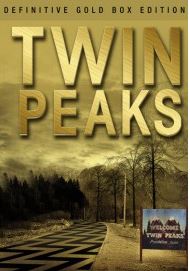 In case you hadn’t heard, Showtime has announced a nine-episode revival of the Twin Peaks series that originally aired on ABC from 1990 to 1991. For those of you who are older, the mention of Twin Peaks conjures up the memory of the quirky TV show and not a symbol representing objectified women, inauspicious food (that’s an assumption since the Dude has no firsthand knowledge), and Sons of Anarchy posers flexing their biceps and engaging in fracases (or is it fracai?). Yes, youngsters, there is another Twin Peaks, one that existed before the name was soiled by yet another franchise that the world really does not need. This one is much more tolerant, much more haunting, and with much more enigma and intrigue. The Showtime episodes, set to take place 25 years after the original series ended, will be written by creators David Lynch and Mark Frost (Lynch temporarily bailed on it because of Showtime’s lack of support, but he got his way in the end). In Nebraska, only a couple of public libraries own the Twin Peaks DVD’s (the series lasted two seasons; the gold box edition contains all of them). For those of you who are fans, it might be time to revisit before the Showtime continuation airs; for those who have never heard of the Twin Peaks series, it is worthy of a thumbs up on today’s Wednesday Watch.
In case you hadn’t heard, Showtime has announced a nine-episode revival of the Twin Peaks series that originally aired on ABC from 1990 to 1991. For those of you who are older, the mention of Twin Peaks conjures up the memory of the quirky TV show and not a symbol representing objectified women, inauspicious food (that’s an assumption since the Dude has no firsthand knowledge), and Sons of Anarchy posers flexing their biceps and engaging in fracases (or is it fracai?). Yes, youngsters, there is another Twin Peaks, one that existed before the name was soiled by yet another franchise that the world really does not need. This one is much more tolerant, much more haunting, and with much more enigma and intrigue. The Showtime episodes, set to take place 25 years after the original series ended, will be written by creators David Lynch and Mark Frost (Lynch temporarily bailed on it because of Showtime’s lack of support, but he got his way in the end). In Nebraska, only a couple of public libraries own the Twin Peaks DVD’s (the series lasted two seasons; the gold box edition contains all of them). For those of you who are fans, it might be time to revisit before the Showtime continuation airs; for those who have never heard of the Twin Peaks series, it is worthy of a thumbs up on today’s Wednesday Watch.
Twin Peaks has a bit of everything. Old fashioned mystery, humor (mostly dark), horror (it will likely cause you to look over your shoulder at times), offbeat-ness, huge amounts of characters that are difficult to keep track of (diagrams of how characters are interconnected is almost reminiscent of Hegel’s dialectic), complex plot lines, doppelgangers, ethereal music, and a gander into the paranormal or supernatural world. The original show aired a couple years before the X-Files, another show that has recently reappeared (and may be worth checking out), and with a number of similarities. One of the best parts of the show is main character FBI agent Dale Cooper (played by Kyle McLachlan), summed up by this blogger:
“I gotta say I was pretty psyched about Coop’s crime-fighting methods. Most case-solving on TV today relies heavily on Western science with microscopes, ‘enhanced’ security footage, and DNA. Coop solves murders by dreaming and throwing stuff. And no one seems to question him. Coop and Twin Peaks champion the belief that there are other ways of knowing beyond science …”
Nuff’ said. Shaka.
Posted in General, Uncategorized
Leave a comment
The Data Dude on Monotony
 Thanks goes out to all of you who are helping collect data, by completing our makerspace survey or working on your public library surveys. I know surveys sometimes can be a chore and/or a bore, so here’s to you for helping us in that regard. Recently, the Dude has been reflecting on the monotonous and repetitive nature of daily life (how’s that for a transition?). Between periods of boredom and emotional responses from other humans analogous to something out of the Twilight Zone, there is this notion of balance in life. Speaking of which, isn’t that a concept that leaves a sour taste in one’s mouth? Balance, that is. It implies that we joggle all these sets of circumstances in our lives, and one circumstance seems to be necessary in order to obtain the other. The implication is that the monotonous work feeds the ability for leisure (or at least less monotonous work). The Dude sees this monotony almost every day, when encountering the same strangers in the same places doing the same things (that’s the Twilight Zone reference, but maybe Black Mirror is more appropriate since technology is often a part of it). Well, the Dude says toss balance out in the toter. Change your line of thought so that it is no longer necessary. But before you do so, know that once in a while, something or someone appears that changes the game, surprises you, and perhaps does not completely eradicate the monotonous feelings but somehow adds some meaning, passion, or purpose. Make sure that if that happens, you don’t miss it. Irish poet John O’Donohue (Eternal Echoes: Celtic Reflections on Our Yearning to Belong) aptly sums part of this up:
Thanks goes out to all of you who are helping collect data, by completing our makerspace survey or working on your public library surveys. I know surveys sometimes can be a chore and/or a bore, so here’s to you for helping us in that regard. Recently, the Dude has been reflecting on the monotonous and repetitive nature of daily life (how’s that for a transition?). Between periods of boredom and emotional responses from other humans analogous to something out of the Twilight Zone, there is this notion of balance in life. Speaking of which, isn’t that a concept that leaves a sour taste in one’s mouth? Balance, that is. It implies that we joggle all these sets of circumstances in our lives, and one circumstance seems to be necessary in order to obtain the other. The implication is that the monotonous work feeds the ability for leisure (or at least less monotonous work). The Dude sees this monotony almost every day, when encountering the same strangers in the same places doing the same things (that’s the Twilight Zone reference, but maybe Black Mirror is more appropriate since technology is often a part of it). Well, the Dude says toss balance out in the toter. Change your line of thought so that it is no longer necessary. But before you do so, know that once in a while, something or someone appears that changes the game, surprises you, and perhaps does not completely eradicate the monotonous feelings but somehow adds some meaning, passion, or purpose. Make sure that if that happens, you don’t miss it. Irish poet John O’Donohue (Eternal Echoes: Celtic Reflections on Our Yearning to Belong) aptly sums part of this up:
“We live in a world that responds to our longing; it is a place where the echoes always return, even if sometimes slowly… The hunger to belong is at the heart of our nature. Cut off from others, we atrophy and turn in on ourselves. The sense of belonging is the natural balance of our lives… There is some innocent childlike side to the human heart that is always deeply hurt when we are excluded… When we become isolated, we are prone to being damaged; our minds lose their flexibility and natural kindness; we become vulnerable to fear and negativity.”
If you read that again, you’ll notice that this has the potential to tie into our notion of the library makerspace (although admittedly the Dude was thinking of something more along personal lines), or if you prefer, just scratch your head and move on. But since this blog should (at least in theory) have even a slight applicability towards something library related, let’s take a crack at it.
In response to the makerspace survey, some of you indicated that you were intrigued by the notion but either had limited experience with it or had no experience at all with the term. Well, fear not because that term captures many things (keep reading for more detailed information). Common terms for makerspaces often include hackerspaces, design centers, community collaboration areas, workshops, innovation space, and (the Dude’s favorite to date) creation stations (it conjures up a nostalgic feeling similar to that of Conjunction Junction, and the Dude has an affinity for nostalgic things). The common thread is that the space (often dedicated solely for such a purpose) offers people the ability (either individually or collectively) to come together and create something. Spaces often include all kinds of things or tools to create, and the sky is the limit on what might be offered. The survey contained some of the more common things that libraries, educational institutions, or communities might offer. Collaboration is, however, often an essential part of these spaces, as knowledge might be shared or ideas built upon during the creative process. And it makes sense for libraries to be involved with offering these things and programs. Libraries, in addition to being what one might call anchor institutions in communities (that’s a fancy way of saying they have been around for a long time and have always been and will continue to be there), are facilitators of the free exchange of knowledge and ideas. The makerspace embodies this notion.
Now back to O’Donohue. For the record, these feelings of monotony don’t permeate or consume a huge amount of my time, but they do exist. When we talk about a lot of these things, the notion of confidence comes into play. Now, I’ve blogged before about creative confidence, and that certainly is important. In the library sense, people who come together to collaborate on things (like in a makerspace) certainly need an amount of creative confidence in order to exchange ideas and build on someone else’s ideas. But I’m talking about confidence that gets a person in the door, or gets them to look someone else in the eye, or say hello. To a large and often underappreciated degree, this involves vulnerability, and that may be the topic of discussion on another day. Photo upper right is of the Metz Beer bottling plant, courtesy of Nebraska Memories. Shaka.
Friday Reads: The Last Midwife
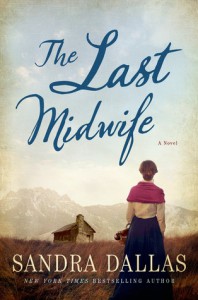 Sandra Dallas is one of my favorite authors, and The Last Midwife does not disappoint.
Sandra Dallas is one of my favorite authors, and The Last Midwife does not disappoint.
From Amazon:
“It is 1880 and Gracy Brookens is the only midwife in a small Colorado mining town where she has delivered hundreds, maybe thousands, of babies in her lifetime. The women of Swandyke trust and depend on Gracy, and most couldn’t imagine getting through pregnancy and labor without her by their sides.
But everything changes when a baby is found dead…and the evidence points to Gracy as the murderer.
She didn’t commit the crime, but clearing her name isn’t so easy when her innocence is not quite as simple, either. She knows things, and that’s dangerous. Invited into her neighbors’ homes during their most intimate and vulnerable times, she can’t help what she sees and hears. A woman sometimes says things in the birthing bed, when life and death seem suspended within the same moment. Gracy has always tucked those revelations away, even the confessions that have cast shadows on her heart.
With her friends taking sides and a trial looming, Gracy must decide whether it’s worth risking everything to prove her innocence. And she knows that her years of discretion may simply demand too high a price now…especially since she’s been keeping more than a few dark secrets of her own.
With Sandra Dallas’s incomparable gift for creating a sense of time and place and characters that capture your heart, The Last Midwife tells the story of family, community, and the secrets that can destroy and unite them.”
Posted in Books & Reading, General, Information Resources, Uncategorized
Tagged Friday Reads
Leave a comment
Free Webinar on Rural Health Resources
 Discover National Library of Medicine Resources and More: Rural Health
Discover National Library of Medicine Resources and More: Rural Health
Wednesday, January 27, 2016 – 1 PM MT/2 PM CT
Join us at https://webmeeting.nih.gov/mcr2
Residents of rural communities, both consumers and health professionals, face challenges when seeking access to health information. Yes—people in rural communities are part of the underserved population too. This webinar will feature reliable resources available to assist rural populations with their health information needs. The session will highlight common characteristics of rural areas and their demographics, and identify some helpful resources specific to the needs of those in rural settings. Presentation will include hands-on exercises. No registration required. Eligible for CE credits for the Nebraska Public Librarian Certification.
Instructions to connect to the webinar audio will show up once you’ve logged in. No registration required. Captioning will be provided and the sessions will be recorded. Questions to christian.minter@unmc.edu
The Data Dude – Makerspace Survey
 Thanks to all of you who have responded to our recent survey on library makerspaces. In the first day alone, we received over 100 responses. The survey will stay open for a little while longer, so if you haven’t yet looked at it, there is still time. The survey is short; it should only take about 5-10 minutes to complete. Thank you in advance for your time and effort.
Thanks to all of you who have responded to our recent survey on library makerspaces. In the first day alone, we received over 100 responses. The survey will stay open for a little while longer, so if you haven’t yet looked at it, there is still time. The survey is short; it should only take about 5-10 minutes to complete. Thank you in advance for your time and effort.
Here is a link to the survey.
Also, you have just over one month to complete your public library survey. Please contact me if you have questions about either survey. Shaka.
Posted in General, Library Management, Technology, Uncategorized
Leave a comment
The Data Dude: Public Library Survey
 This is a friendly first of the year reminder to those who have yet to start or complete your IMLS Public Library Survey. The deadline is February 19, 2016. The survey is required for your library to receive state aid if you are accredited. If you aren’t accredited, you still have an incentive to complete the survey ($200), called Dollar$ for Data.
This is a friendly first of the year reminder to those who have yet to start or complete your IMLS Public Library Survey. The deadline is February 19, 2016. The survey is required for your library to receive state aid if you are accredited. If you aren’t accredited, you still have an incentive to complete the survey ($200), called Dollar$ for Data.
The link to log in to the survey is here. If you forgot your password, send me an e-mail and I will get it to you.
According to the last published statistics by IMLS, Nebraska was second to last (behind Puerto Rico) in response rates to the public library survey, so we need your help to improve our percentage. If you have any questions about the survey, or need any help, please contact me.
Posted in General, Library Management, Uncategorized
3 Comments
